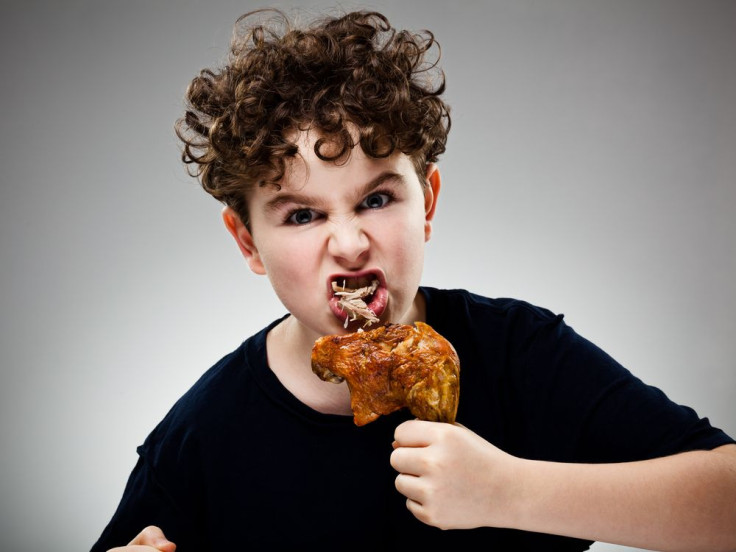Eating Chicken Off The Bone Or Corn On The Cob Linked To Aggression In Children

Children who practice poor eating etiquette tend to have trouble controlling their appetite, which can lead to compulsive eating, binge eating, and weight gain. Research also shows that children with a voracious appetite may have trouble controlling their attitude and temper. A study conducted at Cornell University has revealed that kids who eat their meals by hand are more likely to display aggressive behavior compared to those who eat with a fork and knife.
A research team from the Food and Brand Lab at Cornell observed 12 elementary school children between the ages of 6 and 10 over the course of two days. After the group was split in half, six of the kids were given a meal of chicken on the bone while seated at a picnic table, and the remaining six were given chicken that was cut into bite size pieces while seated at a separate picnic table. Upon finishing the meal, each child was instructed to stay inside of a circle with a 9-foot radius by two camp counselors while they were videotaped. Conditions of study were revered on the second day.
Trained coders were brought in to review the taped sessions and provide their opinion regarding the behavior of the group who ate chicken off the bone compared to the group who was served bite size pieces of chicken. Both the coders and the camp counselors observed that children who ate with their hands acted twice as aggressively and were twice as likely to disobey adults. They were also more likely leave the 9-foot circle radius, jump around, and stand on the picnic tables without permission.
"They were twice as likely to disobey adults and twice as aggressive toward other kids," Brian Wansink, professor and director of the Cornell Food and Brand Lab, said in a statement. "If you want a nice quiet, relaxing meal with your kids, cut up their food. If drumsticks, apples, or corn on the cob are on the menu, duck!"
According to the American Academy of Pediatrics, many children can become anxious, excited, or may have trouble settling down around mealtimes, especially later in the day. To prevent a child from becoming overly active before or after a meal, parents may want to consider “food rules” for their kids to follow while eating. For example, washing hands before and after meals, staying seated while eating, and helping with clean up after they are done eating can help remind children that breakfast, lunch, and dinner are not playtimes.
Source: Shimizu M, Camps G, Zampollo F, Wansink B. Biting versus Chewing: Eating Style and Social Aggression in Children. Eating Behaviors. 2014.



























